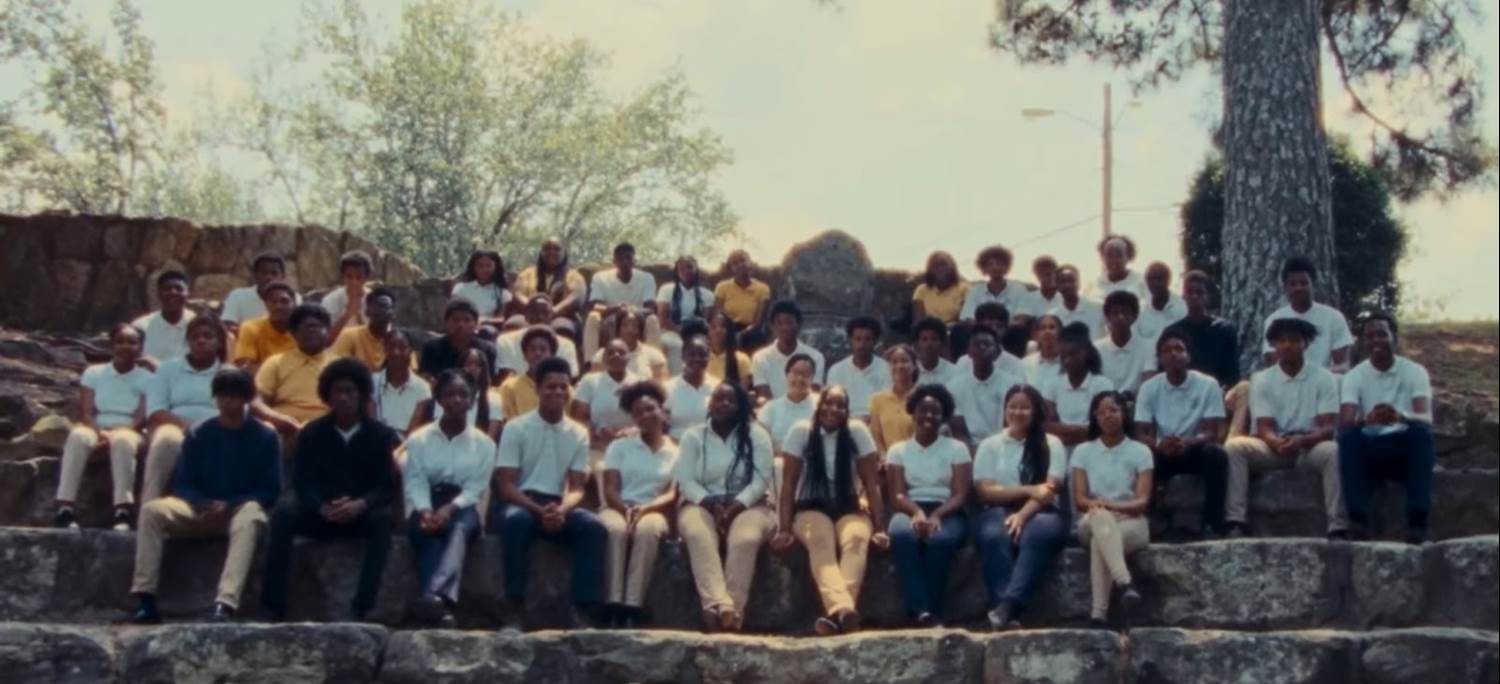Sacred Soil: The Piney Woods School Story is a new documentary from Andscape coming to Hulu this month. It follows the students and faculty of Piney Woods School, one of America’s oldest historically Black boarding schools. For 115 years, the school has worked to shape the future and “empower learners”. The film itself, directed by J.J. Anderson, follows the students through a school year of attending classes, living on campus, and trying to exist as teenagers in an ever increasing world.
Piney Woods School’s historical glances towards the past are brief, but interesting. As the students and staff go throughout their day, black and white footage and photos from the same locations appear on screen to great effect. The bones of Piney Woods’ mission is more visible in these moments, but felt throughout. When the school’s president shares his journey from student to leader, the school’s promise to “empower learners” has a wonderful proof of concept shared with audiences. Frustratingly, we never get a deeper dive into the school’s beginnings or trajectory, just these brief glimpses into the past.
Maybe that’s the point all along: to show that we need to continue to revel in the now when looking at black communities. Too long has the culture always felt a need to attach despair and abuse to every black narrative presented. (i.e. Moonlight’s victory at the Academy Awards being a black-led story that wasn’t mired with oppression)
However, it’s hard to engage with the banality of being a high schooler. The majority of the film’s 90-minute runtime is spent with students just existing. Now, there is a silent power behind this move, as we rarely get to view historically black schools in the media, narratively or otherwise. (Hearing discussions from students about having to code switch is interesting, especially when they discuss their fortune in not having to deal with being “more white” thanks to their current school community.) Yet, after a while, the banal becomes the norm to a frustrating degree.
It’s hard to create engaging material out of the normal. So, the moments when students argue against what has been presented as their normal? That’s when the documentary gains some meat. Discussions of the school’s reliance on christianity along with their views on the LGBTQ+ community come to the surface mid-way through, creating an interesting dynamic between an institution trying to stay relevant after a century of operation and their lack of wanting to change.
As the president briefly stresses about the continued path the school can take to remain open amidst a struggle to be financially stable, it’s hard not to return back to these student conversations as proof that maybe some change needs to come from within to allow for stability. However, this is juxtaposed with the inherent truth that it’s always going to be harder for an all-black school to create the same financial pull as that of majority white campuses.
For a 90-minute documentary hoping to shed light on an often ignored learning institution, not much is shared past the idea that high schoolers exist. They want to use their phones in the cafeteria. They don’t want to write 50 essays a week. They want to figure out their futures. With a storied history behind the school, it's a shame that all we receive are a few black and white photos. At the very least, maybe this film will allow the school to hit their fundraising goals.
Sacred Soil: The Piney Woods School Story debuts on Hulu on February 23rd.

